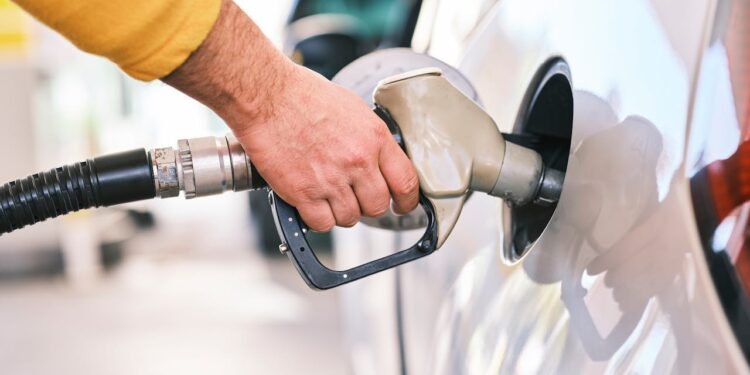In Uganda, where fuel prices fluctuate and car owners are constantly seeking better performance or savings, the choice between regular and premium fuel often sparks debate. Many drivers wonder if paying more for premium fuel is truly worth it. In this comprehensive guide, we break down the differences between regular and premium fuels, what they mean for your engine, your wallet, and how to make the right choice for your vehicle.
Understanding the Basics: What Are Regular and Premium Fuels?
At the pump, the difference between regular and premium fuel typically comes down to octane rating—a number that represents a fuel’s resistance to engine knocking. In Uganda, regular fuel generally has an octane rating of 91, while premium fuel ranges between 95 and 98.
- Regular Fuel (91 Octane): Designed for most standard engines. It ignites at lower pressures, making it suitable for everyday vehicles that do not require high compression performance.
- Premium Fuel (95-98 Octane): Resists pre-ignition (knocking) better. Ideal for high-performance or turbocharged engines that operate under higher pressure and temperature conditions.
Engine Performance: Does Premium Fuel Boost Power?
Many drivers assume premium fuel automatically increases a vehicle’s power. That’s not always the case. If your car is not designed for high-octane fuel, you are unlikely to see a performance gain. In fact, manufacturers tune most engines to work optimally with regular fuel.
However, for vehicles with high compression ratios, turbochargers, or superchargers, premium fuel is essential. Using regular fuel in such cars can lead to engine knocking, reduced efficiency, and potential long-term damage.
👉 Tip: Check your car’s owner manual for the recommended fuel type. If it says “premium recommended,” you can still use regular in emergencies. But if it says “premium required,” stick with premium.
Fuel Economy: Can Premium Save You Money in the Long Run?
It’s natural to think that better fuel equals better mileage, but studies show the difference is minimal unless your engine specifically requires premium fuel. In Uganda, where fuel costs are a major concern, evaluating cost versus benefit is important.
- Using premium in a car built for regular fuel won’t significantly improve fuel economy.
- Using regular in a car that needs premium can reduce mileage and damage engine components, leading to higher maintenance costs.
🛠️ Fuel-saving tip: Regular maintenance like air filter changes, proper tire pressure, and using quality engine oil can have a greater impact on fuel economy than upgrading your fuel type.
Engine Longevity: Which Fuel Type Helps Your Engine Last Longer?
While premium fuel contains detergents and additives that help clean engine components, most modern fuels (even regular) already include essential additives to prevent carbon build-up and corrosion.
What truly impacts engine longevity is driving habits and vehicle maintenance. Consistent oil changes, timely servicing, and avoiding aggressive driving are more crucial than your fuel choice—unless your engine explicitly needs premium.
📍 Looking to extend your car’s lifespan? Read our complete guide on engine maintenance and performance.
Environmental Impact: Is Premium Fuel More Eco-Friendly?
Premium fuel does not necessarily mean cleaner emissions. The environmental difference between regular and premium fuels is negligible for most vehicles. However, using the correct fuel for your engine ensures better combustion, fewer emissions, and improved catalytic converter performance.
Ugandan drivers committed to sustainability should focus on:
- Keeping engines properly tuned
- Reducing unnecessary idling
- Carpooling or using alternative transport when possible
For eco-conscious motorists, consider hybrid or fuel-efficient used cars. You can browse such options on Auto24 Uganda, where a variety of low-emission vehicles are listed.
What Happens If You Use the Wrong Fuel?
Using premium in a regular-fuel car: Won’t harm your engine, but offers little benefit. You’re just paying more.
Using regular in a premium-only engine: This can cause pinging or knocking, reduced performance, and over time, serious engine damage. This could mean costly repairs.
🚗 Pro tip: If you’re unsure whether your vehicle truly needs premium, talk to a trusted mechanic or refer to the manufacturer’s recommendations.
Common Myths About Premium Fuel
Let’s bust a few myths:
- ❌ Premium fuel cleans your engine better – Not always true; modern fuels already contain adequate detergents.
- ❌ Premium improves fuel economy in all cars – Only in engines designed for it.
- ❌ Premium gives you more horsepower – Again, only if your engine is built for it.
When Should You Use Premium Fuel in Uganda?
You should use premium fuel if:
- Your vehicle’s manufacturer requires it (check your manual).
- Your engine has knocking or pinging issues on regular fuel.
- You drive a turbocharged or high-performance vehicle.
- You tow heavy loads frequently, especially in high temperatures or hilly terrain.
For those who own second-hand vehicles, especially performance or European models, premium may be a safer choice. Explore these models at Auto24 Uganda and check listings for cars like the BMW 320i, Audi A4, or Volkswagen Golf GTI, which often require premium.
Final Thoughts: Which Fuel Should You Choose in Uganda?
For most Ugandan drivers with standard cars like the Toyota Premio, Nissan Tiida, or Suzuki Alto, regular fuel is perfectly sufficient and more cost-effective.
If you’re driving a luxury or turbocharged vehicle, using premium is essential for optimal performance and engine health. Either way, the best approach is to follow your car’s requirements, not myths or marketing.
Choosing the right fuel helps you save money, maintain your engine, and drive more confidently on Ugandan roads—from Kampala’s traffic to long road trips through Fort Portal or Gulu.
Explore more vehicle care insights, maintenance advice, and road trip guides tailored for Ugandan drivers at Automag Uganda.
If you want to read more information about how to boost traffic on your Website, just visit –> The Insider’s Views




